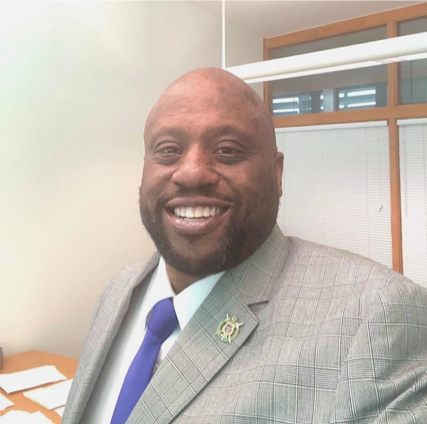
In 2014, he sought the advice of a dermatologist as well as an allergist, both of whom could not give answers for his condition.
“They told me it was it was probably allergies.”
Two years later, with no relief for his skin problem, Stone moved to Chattanooga, TN, still attributing his condition to allergies.
“In 2017, I started getting allergy shots and that didn’t work either,”
“In 2018, they diagnosed me with eczema over 80% of my body and I was placed on a treatment of Dupixent injections in order to treat the eczema. I had 300mg shots every two weeks.”
Nevertheless, his scalp began to turn completely white and flake.
It was not until mid 2019 that Stone was taken off Dupixent and had a face and scalp biopsy and
2-3 weeks later, another skin biopsy on his arm, this time testing for cancer.
That second biopsy came back positive.
“They diagnosed me with Non-Hodgkin’s T-Cell Lymphoma, (or Cutaneous T-cell lymphoma).”
“I was shocked, but ready to deal with it.”
For his treatment, Stone began a regimen of Light Box Therapy soon after his diagnosis. He receives a 20-minute light dose of UV light per treatment to kill cancer cells in his skin.
“According to my doctor,” says Stone, his disease “is not that serious.” But he doesn’t know if the UV light treatment will cure his disease. “It’s possible, but radiation or intravenous chemotherapy may be necessary. No treatment at all means I could die from infection.”
Stone’s delay in diagnosis did have consequences.
“My skin has black spots from scratching and from the treatment.”
“Now, I just do what I can and the rest is in God’s hands. It is what it is.”
A potential side effect of the treatment is sunburn so Stone was strongly advised by his doctor to avoid sun exposure. But he wonders if his body is more susceptible to infections now that he is being treated for cancer and would like to know if that raises the risk to his heath if he caught Covid-19. It’s not something that his doctor has mentioned.
He receives his light therapy in a private dermatology practice in Tennessee.
“Lisa Carroll (PA-C Nurse), actually treats me and I’m thankful to her.”
We went on to discuss the alarmingly high cancer rates in the black community.
“My father died from Pancreatic cancer and my grandmother died from stomach cancer. I’d say lots of things linked to food, environment, medications make us more susceptible.” he says.
He is now very conscious of what he eats.
“If I could change one thing, I’d say my healthy eating habits should’ve started earlier. I just live my life better now,” says Stone, “Including no more processed foods or GMOs.”
Collectively, blacks have the highest death rate and shortest survival of any racial/ethnic group in the US for most cancers. Black men also have the highest cancer incidence rate. (cancer.org) American Cancer Society. Cancer Facts & Figures for African Americans 2019-2021.
To find free breast and cervical cancer screenings in your area, go to:
https://www.cdc.gov/cancer/nbccedp/screenings.htm
For people with a family history of cancer, you should seek regular health screenings from your doctor.



